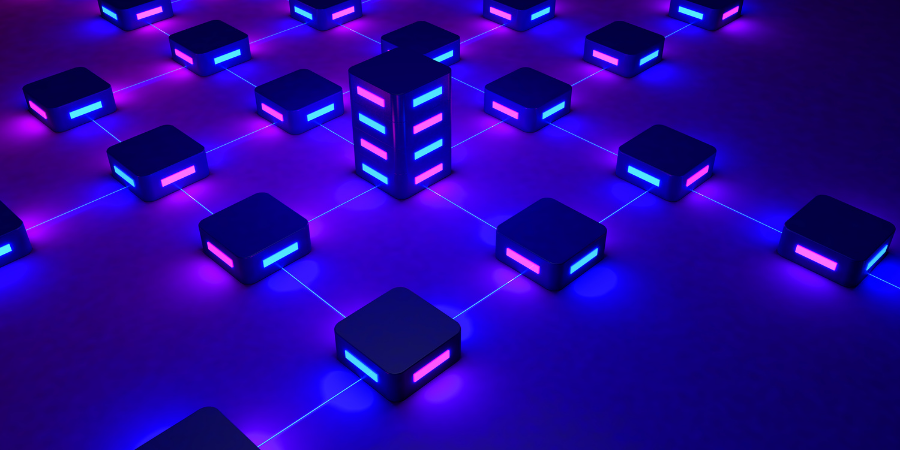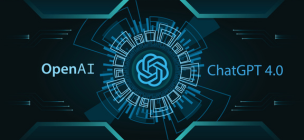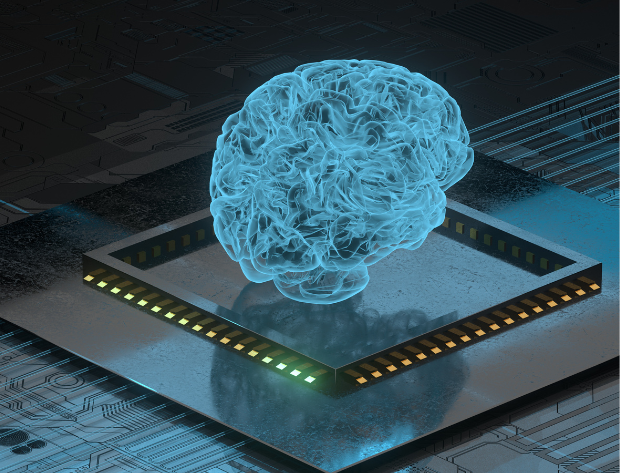What is Blockchain? How Does Blockchain Work?
Blockchain is a ledger that is both decentralized and immutable. Blockchain technology makes it easier to record corporate transactions and track net profits. This technology is used by cryptocurrencies such as Bitcoin and Ethereum. For example, the bitcoin blockchain keeps track of all bitcoins sent and received. So, money transfers are made possible by cryptocurrencies and blockchain technology. It eliminates the need for banks or credit card companies.

The purpose of blockchain, also known as distributed ledger technology (DLT), is the recording and distribution of digital information. In this process, no editing can be done on the data. That is why it is not wrong to say that blockchain forms the basis of secure ledgers and track records in trading businesses. These records cannot be changed, deleted, or destroyed.
What is Blockchain Technology?
Blockchain consists of decentralized data that one can securely share as a ledger. Here, data can also be shared within various big groups. In addition, it is possible to collect, combine, and share transactional records from several sources thanks to blockchain cloud services. The data is then divided into blocks. Later, these blocks are linked to unique identifiers with a cryptographic algorithm.
The blockchain concept first appeared as a research project in 1991. It also paved the way for the 2009 launch of Bitcoin. Blockchain technology, which has grown in popularity over time, has numerous advantages:
• You are not obliged to seek the services of an intermediary.
Blockchain parties confirm and complete the necessary transactions during trading without using a third party. For that matter, you will save time and avoid the cost of consulting an intermediary.
• You will achieve a considerably high level of accuracy in your business transactions.
The error rate naturally decreases when a blockchain transaction is confirmed by more than one node. Even if one of the nodes makes a mistake in the database, the others notice and correct the error. On the other hand, a possible error in a traditional database is likely to go unnoticed. Furthermore, each asset is defined personally in the blockchain. In conclusion, it is not possible to spend an asset twice.
• A high-ranking security system will make you feel safe.
Fraudulent transactions are nearly impossible on a decentralized network like blockchain. A malicious attack would necessitate the destruction of every node and the alteration of ledgers.
• You will experience more effective transfers.
Blockchain will make you experience efficient financial and asset transfers since it is available 24 hours daily. With blockchain technology, financial transactions will be simpler and quicker, especially on an international scale. In this way, you do not have to wait for the validation of a bank or government authority.

What are the Types and Application Areas of Blockchain?
Blockchain is most commonly used in crypto, NFT, and Web3. Before discussing the implementation fields of blockchain, this article will first mention the four types of blockchain technology, which are public, private, hybrid, and consortium.
1- Genel
A public blockchain does not require authentication. To put it another way, anyone with an internet connection may easily sign up and download it.
2-Özel
This type of blockchain needs to be authorized. A company or organization controls the private blockchain. Also, these bodies decide which users will gain access. Only those with the necessary permissions are allowed to participate.
3-Hibrit
Hybrid blockchain combines elements of both public and private blockchains. A single person or company manages it. The decision maker will determine who can read the specific data stored on the chain. Also, data can be made publicly available, but it is entirely up to the authorized entity.
4-Konsorsiyum
A consortium blockchain, a federated blockchain, has a more decentralized attitude than a private blockchain. The consortium, as opposed to the hybrid blockchain, is created by a group of different entities. The goal is for these entities to collaborate via a decentralized network. This type of blockchain is not accessible if one is not in the consortium.
In today's world, over 10,000 crypto money systems use blockchain in operation. Contrary to popular belief, blockchain technology is not only used in the cryptocurrency industry. Many types of businesses utilize the blockchain to store data. It is most commonly used in the following areas:
- Health
- Currency
- Finance and banking
- Supply chain
- Real estate
- Media
- Cybersecurity
With the emergence of various cryptocurrencies over time, the use of blockchain has grown and continues to grow.

Which Programming Languages are Used for Blockchain?
Blockchain technology's overall operations and growth are expected to reach $20 billion in the coming years. The demand for blockchain has increased even more in recent years. As blockchain grows in popularity, the question "Which programming language should I choose for Blockchain?" frequently arises.
• Solidity
Solidity is a rapidly growing blockchain programming language. It was initially used to write smart contracts on the Ethereum Virtual Machine.
• Java
Java is one of the most popular programming languages. It is employed to generate blockchain programs such as Ethereum, NEO, and IOTA.
• Python
The most practical reason for using Python is that it is open source. You can choose from thousands of different plug-ins and sources. You do not have to deal with long codes while creating prototypes through it. If you are a beginner developer, then Python is what you need.
• C++
Developed in 1985, C++ enables developers to outline data in accordance with their requirements. C++, a programming language, is frequently used in developing blockchain applications such as Bitcoin, Ripple, and Stellar.
• C#
C#, created as a Microsoft language, gradually gained popularity among users. It allows developers to generate programs that run on multiple operating systems.
Besides Solidity, Java, and C++, blockchain programming languages include Rholang, Simplicity, Go, and PHP.

Is Blockchain Safe?
In many ways, blockchain technology has ensured decentralized security and reliability. As new blocks are stored, they are added to the end of the blockchain. It is incredibly tricky to alter the content of a block once it has been added up. Most of the networks must agree on the required changes to make modifications.
Many organizations have tried to create digital money in the past few years. Still, they have ended in failure because of safety concerns. On the other hand, Bitcoin came up with a solution to this problem using its blockchain technology. Contrary to other databases, users run blockchain with no central authority.
Moreover, falsifying or deleting data in the blockchain is basically impossible. The use of blockchain has extended far beyond the cryptocurrency market and into many other sectors of our world. At this point, the multifunctionality of blockchain gives us an idea of blockchain technology's future potential.











